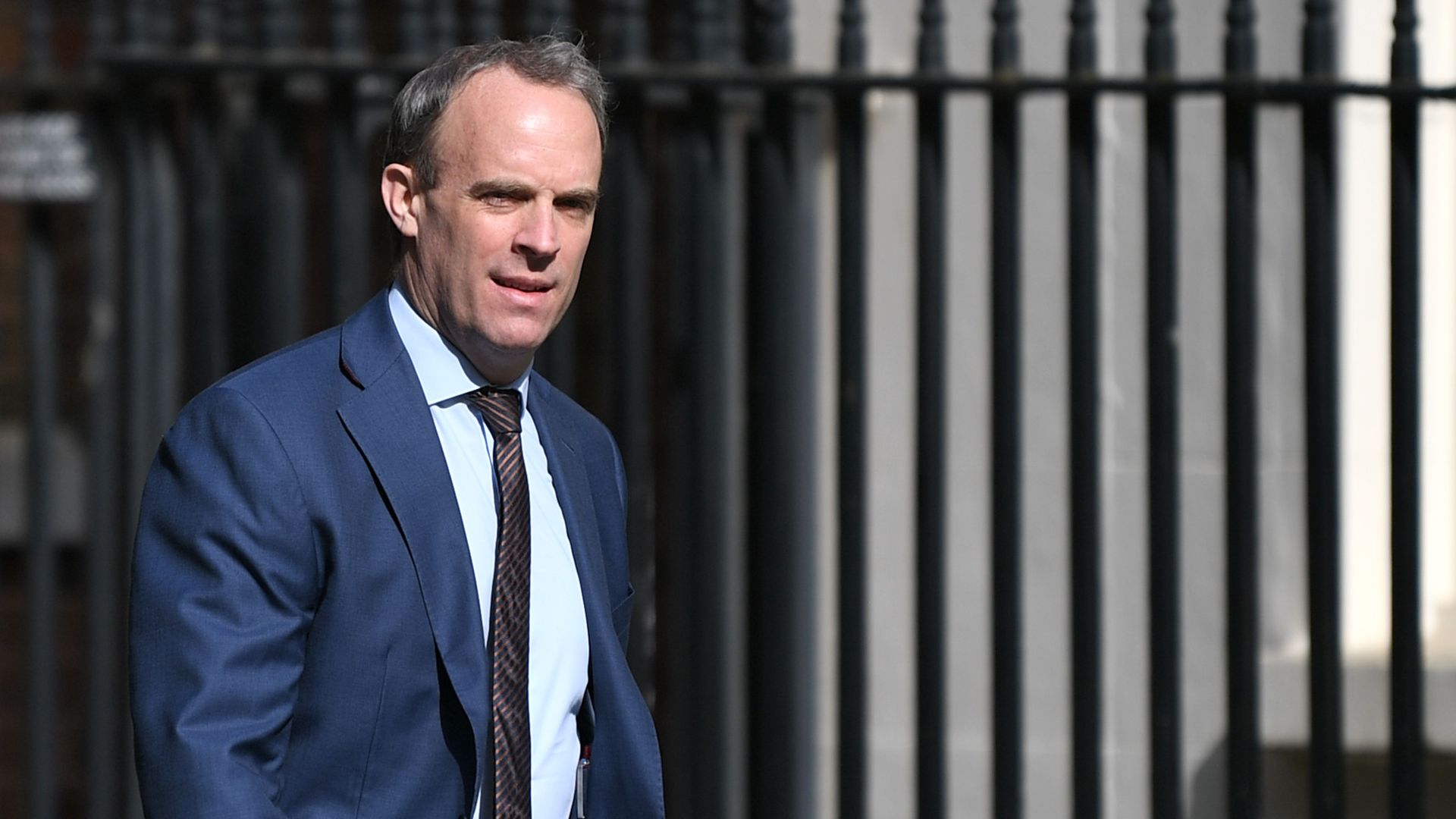U.K. suspends extradition treaty with Hong Kong
Add Axios as your preferred source to
see more of our stories on Google.

U.K. Foreign Secretary Dominic Raab. Photo: Daniel Leal-Olivas/AFP/Getty Images
The United Kingdom announced Monday it will be suspending its extradition treaty and blocking arms sales with Hong Kong as a result of China's draconian new national security law.
Why it matters: The U.K. fears that the extradition treaty, which has been in place for more than 30 years, could be used to extradite individuals to Hong Kong and then have them sent to China, where they could be punished by the authoritarian central government.
- The new national security law effectively outlaws global activism by making it illegal for anyone in the world to promote democratic reform for Hong Kong.
- "We will protect our vital interests," U.K. Foreign Secretary Dominic Raab said. "We will stand up for our values, and we will hold China to its international obligations."
The big picture: The U.K.'s announcement comes as tensions between Western nations and China continue to escalate over Beijing's infringement on Hong Kong's autonomy, human rights violations against Uighur Muslims, handling of the coronavirus pandemic and more.
- It also comes just days after the U.K. backtracked on plans to allow Huawei, a Chinese telecommunications company, to help build the U.K.'s 5G network due to national security concerns.
- Hong Kong has extradition agreements with 19 other countries. The U.K. joins the U.S., Australia and Canada as countries that have suspended their extradition treaties in the wake of the new security law.
The state of play: The U.K. has had an arms embargo on China since 1989. Monday's move extends that embargo to Hong Kong, preventing the export of lethal weapons that could be used for internal repression.
- The U.K. has already offered Hong Kong residents a path to British citizenship and residency after Prime Minister Boris Johnson accused China of a "serious breach" of the terms under which the U.K. returned the city in 1997.
